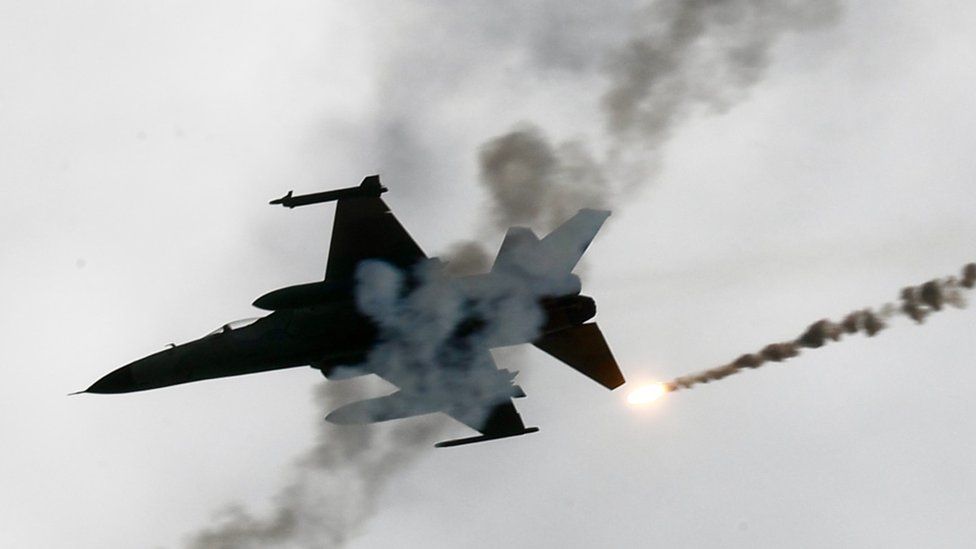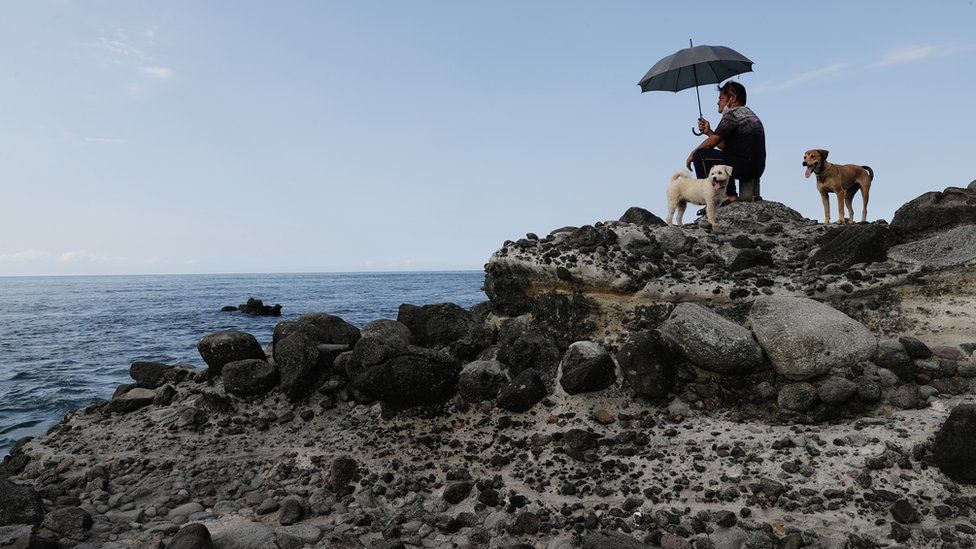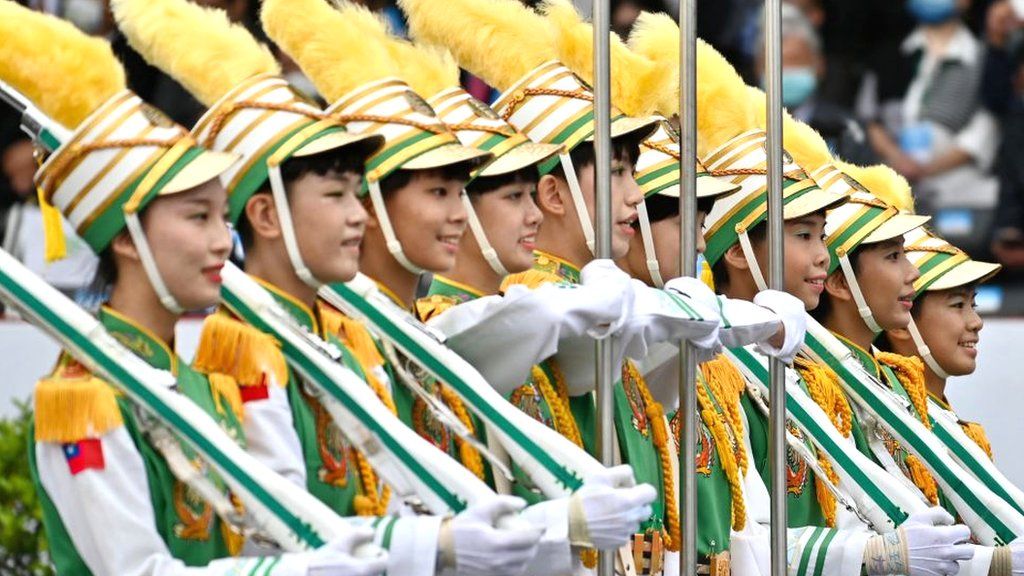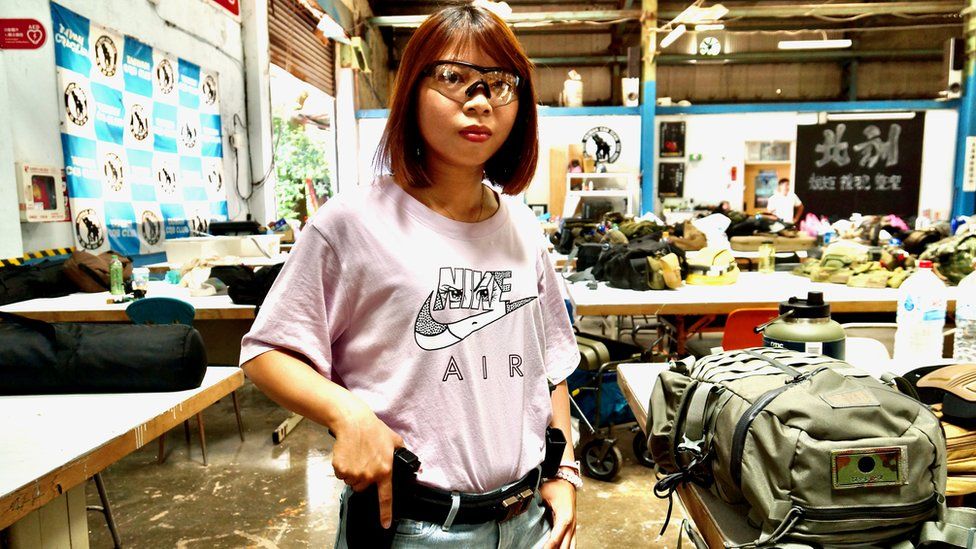China-Taiwan: Can a tech billionaire create a civilian fighting force?
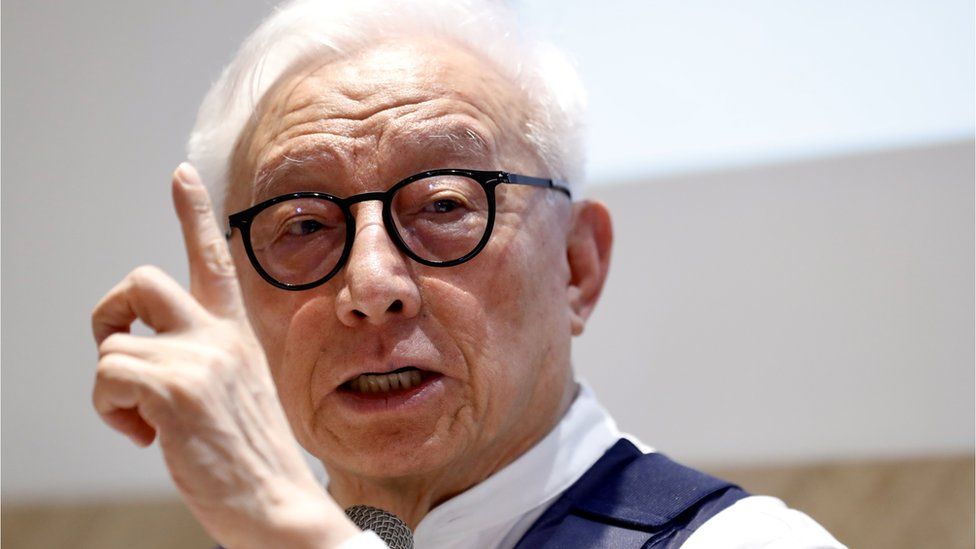
In September this year a retired tech billionaire in Taipei, white-haired and bespectacled, called the island’s media to a press conference to tell them he was pledging one billion Taiwan dollars (£28m; $32m) to create a civilian army.
Dressed in a bulletproof vest over a business shirt, Robert Tsao declared he wanted to help his countrymen and women fight against China.
The aim was to train up three million civilian “warriors” – a seventh of the population – in three years. Office workers, students, shopkeepers, parents could all learn to pick up a gun; he wanted 300,000 sharpshooters.
The task was ambitious, he acknowledged. But he vowed it could be done.
He brandished a picture of a fresh Taiwan identity card, something he’d re-applied for after renouncing his Singapore passport. He wasn’t running away, he said. And he wasn’t scared.
“I think as long as people are in Taiwan, they will be willing to defend their country. They are not afraid of Chinese military aggression,” he told the BBC a few weeks later.
Born in China but raised in Taiwan, Mr Tsao created the United Microelectronics Corp semiconductor company, making his fortune in an industry the island is now globally known for.
As a businessman, he had many dealings in China. An ardent student of history, he has been a high-profile voice in policy debates for decades. In 2007 he championed the idea of a referendum on unification with the mainland.
But he is now among an increasing number of Taiwanese who feel they need to prepare for a possible invasion.
Xi Jinping is set to enter a third term as Chinese Communist Party (CCP) leader – something that has not happened since the rule of the first Communist-era leader Mao Zedong. Achieving what Mr Xi calls “reunification” with Taiwan would seal his legacy.
His decade in charge has seen huge modernisation and expansion of China’s military capability. The People’s Liberation Army (PLA) has increased activity around the Taiwan Strait, the 160km (100 miles) body of water between the island and the mainland.
Such activity has barely stirred the Taiwanese public, accustomed over decades to Chinese sabre-rattling.
But Beijing’s crackdown on Hong Kong in 2019 shattered some of that complacency. Pro-China voices had long held Hong Kong up as an example of what Taiwan could be if it united with China – another example of “one country, two systems” where democracy could be retained.
This year has been another wake-up call, says Mr Tsao. Russia’s invasion of Ukraine reverberated in Taiwan.
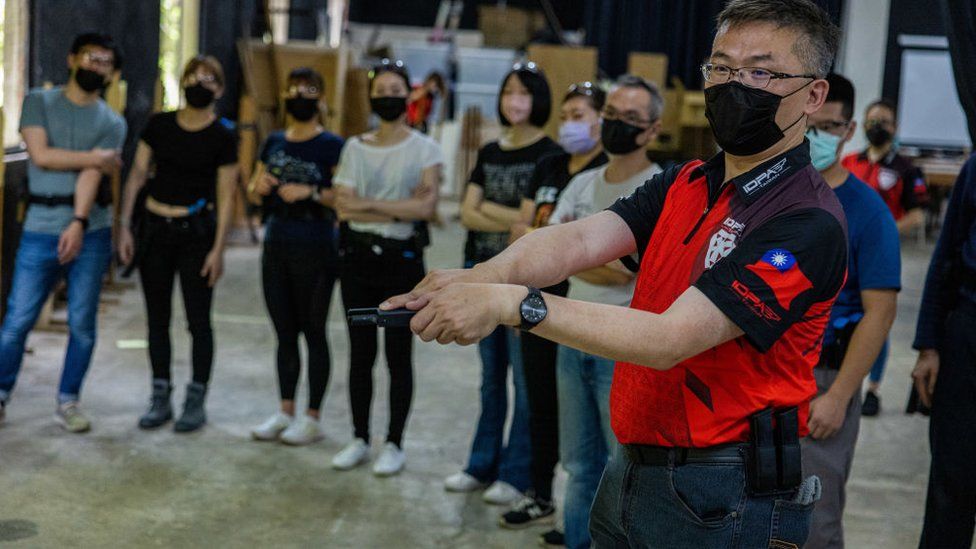
In August cross-strait tensions reached their highest point in decades when US House Speaker Nancy Pelosi visited Taiwan.
China responded with a forceful show of war drills. It wasn’t just a show of intimidation; Beijing got to rehearse how exactly it might attack Taiwan, analysts said.
More than 100 aircraft, ten destroyers and support vessels operated around Taiwan for over a week. China sent submarines and aircraft carriers, fired dozens of missiles.
For Mr Tsao this was the tipping point. He had already started seeing the ruling Chinese Communist Party as a “mafia, a crime syndicate disguised as a national government”.
“I wanted to show my commitment… I thought I would be encouraging to many people, and other business people or leaders who might follow,” he said.
The billionaire also pledged money to develop military drones, critical to Taiwan’s “porcupine” defence strategy.
Taiwan spends 2% of its GDP on its defence budget. The US has sold it $23bn (£21bn) worth of weapons since 2010, including $6bn since 2020 alone. But China is spending at least 15 times more. Beijing commands the world’s largest navy and the PLA has more than two million salaried soldiers and 500,000 more in reserve.
So Taiwan is focusing on asymmetric defence.
“Fighting a war today, like what we see in Ukraine, is not a comparison of numbers of soldiers or numbers of tanks. It’s pretty much a war decided by intelligence,” said Mr Tsao.
It also requires resilience and the will to fight. Taiwan’s army has shrunk since the 1990s and the government has reduced mandatory service over the years – from two years to four months. There’s now an active debate about extending it. For the first time in decades, polls show a majority in favour.
After Ms Pelosi’s visit Mr Tsao asked around and found the Kuma Academy – a civilian defence training group set up in 2021. He vowed to scale it up.
“Chairman Tsao is not alone. I would like to say that he is a mirror, a reflection of our society and where we are right now,” says Wang Ting-Yu, a Taiwanese lawmaker and former chair of the parliament’s security and defence committee.
Locals are eager to learn. People were even hopping on planes to the US territory of Guam to practice shooting real guns because of strict gun laws at home.
These are “hot businesses”, says Mr Wang. “Especially among the younger generation. They’re eager to learn how to protect our country.”
Claire Lee, 27, identifies as a patriot who would stay and defend her home. But she doesn’t see the threat from China as so imminent that she’d take up the training offered by Mr Tsao.
“Everyone was like wow, he’s really got guts. We didn’t actually think that someone would do this, give a bunch of money. Most of the rich and powerful people in Taiwan – the other billionaires – are very pro-China and pro-business,” she said.
“So everyone was talking about it. But I haven’t heard of anyone actually going to do it. And I don’t think I’m doing it either.”
People don’t want to think about the worst-case scenario “until a gun is in your face”, she says.
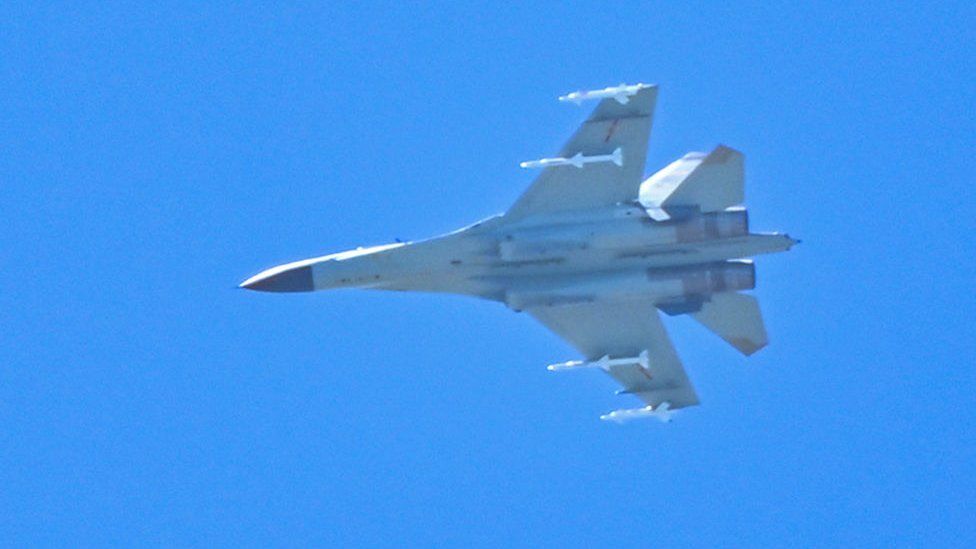
“Most of us are like, we don’t want to fight, we don’t want to be unified [with China] or forced to be independent. We just want to keep living our lives,” she said.
But she acknowledges that things have already changed far quicker than anticipated. She’s now “quite sure” Taiwan’s status will be resolved, possibly through war, in her lifetime.
Despite an official US policy of ambiguity, President Joe Biden has twice said US forces would help Taiwan defend itself against a Chinese attack.
But Mr Tsao says that Taiwanese people need to come to their own rescue.
“What I’m working for is to let Taiwan people be confident in themselves,” he said. “In Chinese I call myself a ‘Pao Zhuan Yin Yu’.”
It’s an idiom which literally translated means “throw a brick [to] attract jade”. But as a saying, it’s about presenting something pretty average or superficial in the hope that it’ll attract a pearl of wisdom, a stunningly superior product from those more enlightened.
Mr Tsao sees his huge donation as the lowly brick.
The jade he’s hoping to get in return is something of far greater value – a wave of Taiwanese fighting spirit.

